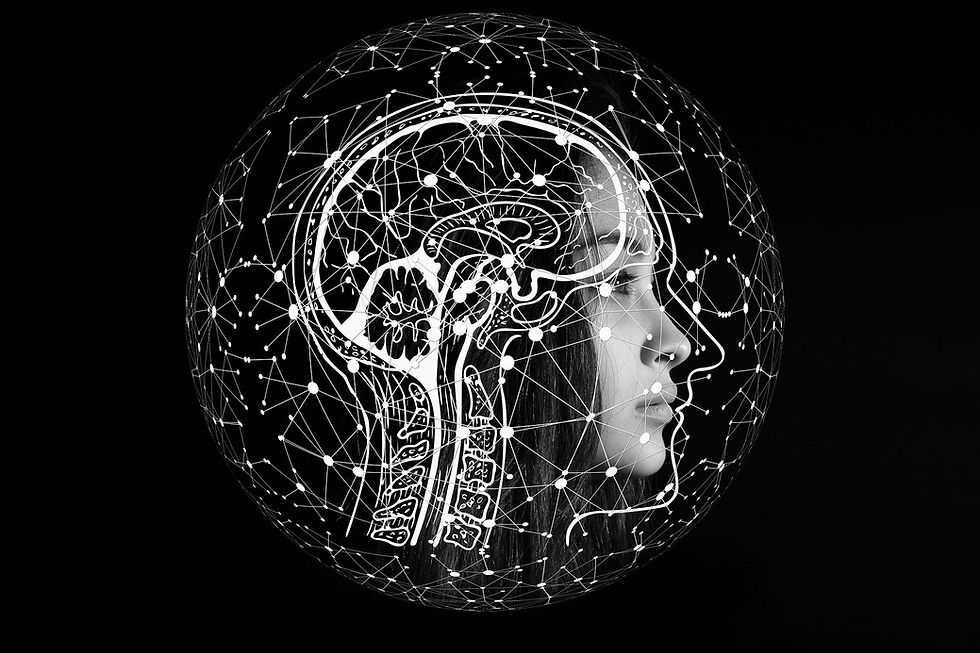Social Media & Your Values
- Mac Ling
- Jul 12, 2020
- 4 min read
Updated: Mar 30, 2022
How can smartphones, social media, and new technology help us reach our goals?
“The cost of a thing is the amount of what I will call life which is required to be exchanged for it, immediately or in the long run.” - Henry David Thoreau

TECHNOLOGY: TO USE AND NOT BE USED
In his non-fiction bestseller Digital Minimalism: Choosing a Focused Life in a Noisy World, Cal Newport argues in favor of a philosophy called “digital minimalism,” defined as follows:
"A philosophy of technology use in which you focus your online time on a small number of carefully selected and optimized activities that strongly support things you value, and then happily miss out on everything else."
This philosophy sounds beautiful—unequivocal, even—for who would disagree? After all, nobody wants their life to be controlled by the attention economy upon which Silicon Valley (and its accoutrements) are built.
But how are we to translate this idyllic-sounding quote into something concrete—how can we do more than carry it as a comforting mantra in our minds, an anodyne satisfying us with the assurance that at least we are aware of our control slowly slipping away, as though we have somehow made a conscious exchange…
Newport disavows the solutions put forth by the new technology skeptics, most of whom advocate “modest hacks and tips” to navigate a life of diminished technology; these minor adjustments, this book argues, are difficult to maintain and are subtractive rather than additive. They remove a clinging nuisance from your life, but the sum total amounts to just this: a removal, an empty space. You will have been returned your TIME and FOCUS—but to what end?
First, Newport argues, we must define what “life” and “value” mean to us as individuals—is it time spent with your spouse, practicing a new language, learning what the sport “curling” entails? Once we define our missions without external interference, we can respond differently to new technology that attempts to ply our attention: We might ask ourselves, does this TEDTalk help me achieve my goal, or does it detract? Can I specifically define how and when to use this technology to buttress my values—to maximize life in the face of minimizing cost?
I hope that you will approach the next set of blog posts with this mindset of usefulness—not as something to kill time, but as a curriculum to read when you have time to absorb it, when you have time to interact with it: to let it enrich you in a way that the things you truly value will be enriched because of it.
HOW NEW TECHNOLOGY MANIPULATES OUR BASEST INSTINCTS
“Addiction is a condition in which a person engages in use of a substance or in a behavior for which the rewarding effects provide a compelling incentive to repeatedly pursue the behavior despite detrimental consequences.”
This is one common psychological model for addiction, as quoted by Newport. New media and platforms such as Facebook, Netflix, Instagram, and Twitter persist in a quiet mental knocking, soliciting entry into the most primal parts our minds. The original purpose of the iPhone, as stated by Apple, was purportedly minimalistic: to integrate multiple functions (music and phone calls) into one device. Welcoming this very reasonable solution, we once blithely admitted these technologies into our lives for the sake of a minor convenience; what we are left with now is an ever-expanding quagmire of addiction. Newport reports that one of the most commonly expressed fears of technological abstinence is “What if I miss something [by turning off Facebook]?” Indeed—but what about the things you will necessarily miss if you DON’T? Once elucidated, this fear feels irrational. And it should. It transcends logic and enters a realm of the brain that is far more fraught with survival-based neurochemistry. The important thing to note is that the same instincts that underpin this fear of missing out were not meant to harm us—they were MEANT to help us survive. Kinship-based altruism and social cognizance was key to evolutionary group success. In a series of experiments, scientist Matthew Lieberman found that even the infant brain’s default network (a network of neurons that fire even when the individual is engaged in no particular task) is social cognition; in other words, even when humans are not consciously focusing on anything else, their brains are processing social information. In fact, several studies have found that social pain often mimics physical pain; over-the-counter painkillers can dull heartbreak for this reason. THIS is the power of the neural network that is exploited when we are not engaged in a particular task—it is why we are wired to allow our leisure to be susceptible to socially addictive new media (technology which, it bears being mentioned, does not in fact fulfill the social function that face-to-face interaction actually would). Newport cites Michael Zeiler’s pecking pigeon experiments from the 1970s, which concluded that rewards delivered unpredictably are far more enticing than those delivered with a known pattern; they initiate more dopamine, create more intense cravings. Features of new media are designed purposefully, not accidentally, to stoke this neurochemical addiction.
Read & subscribe to the full version of "Mac Ling's Monthly Check-In" newsletter here: https://us11.campaign-archive.com/?u=a7562ea07abeaabc53cb6f8b2&id=b826789378




Comments